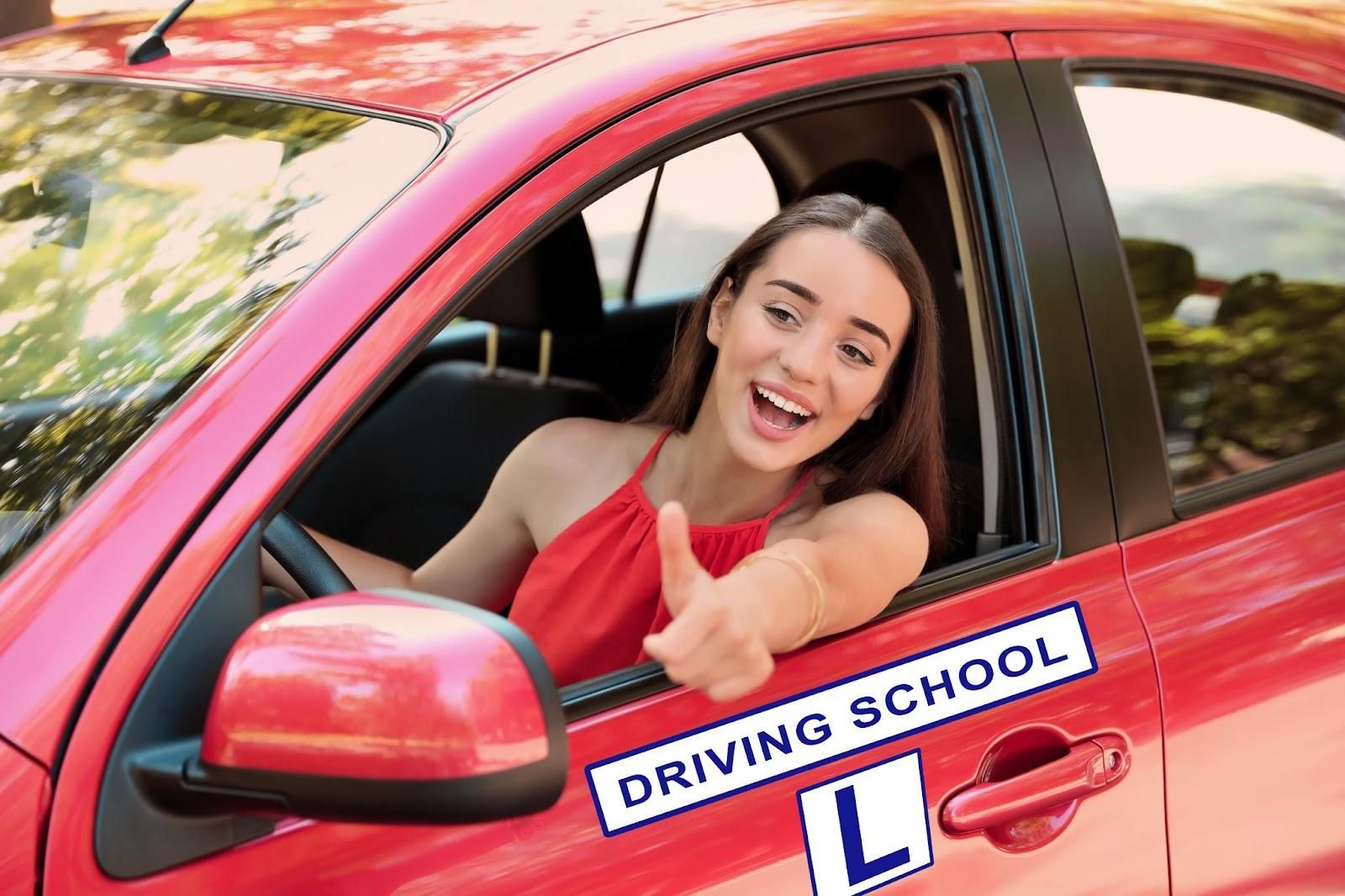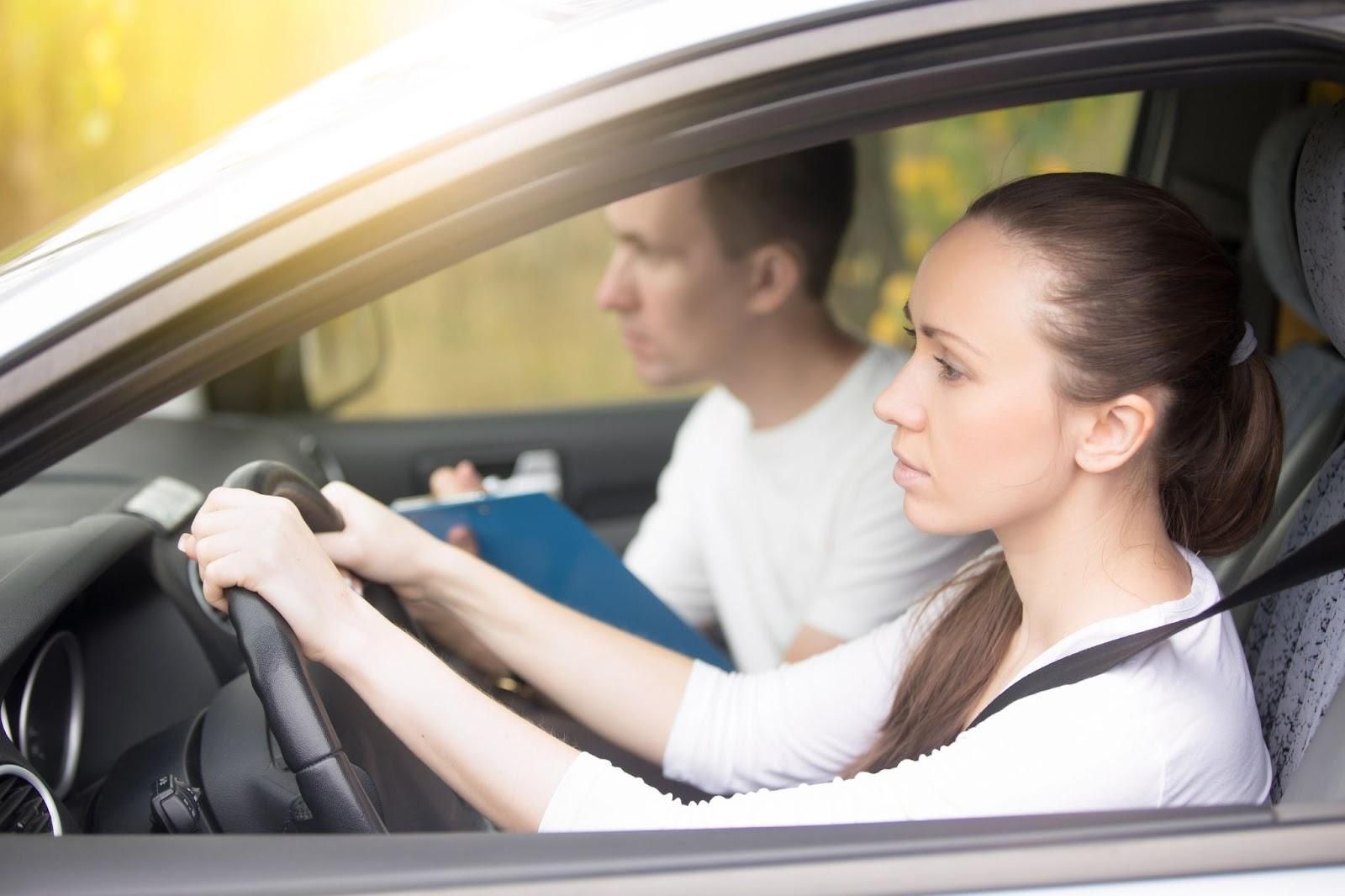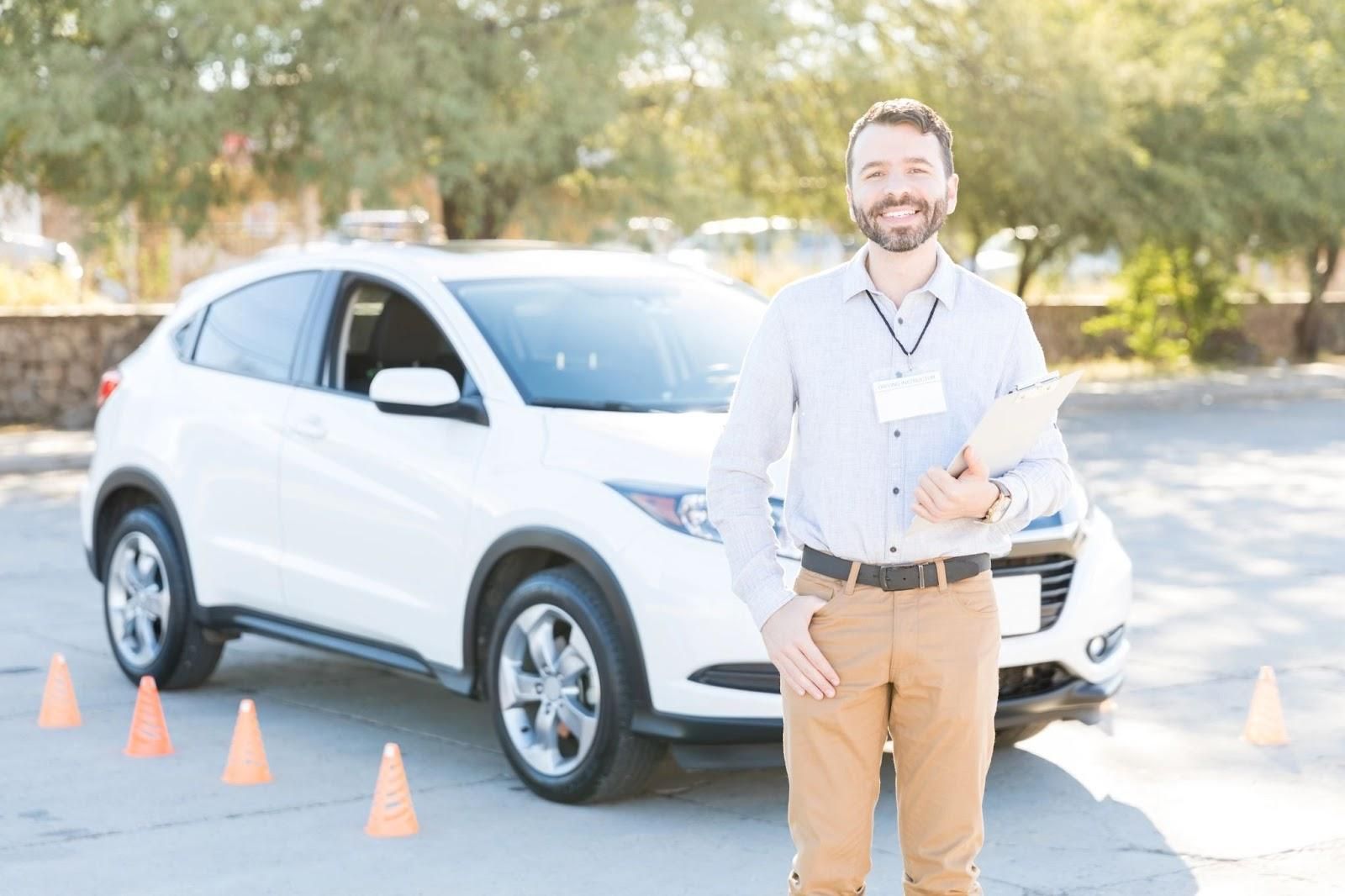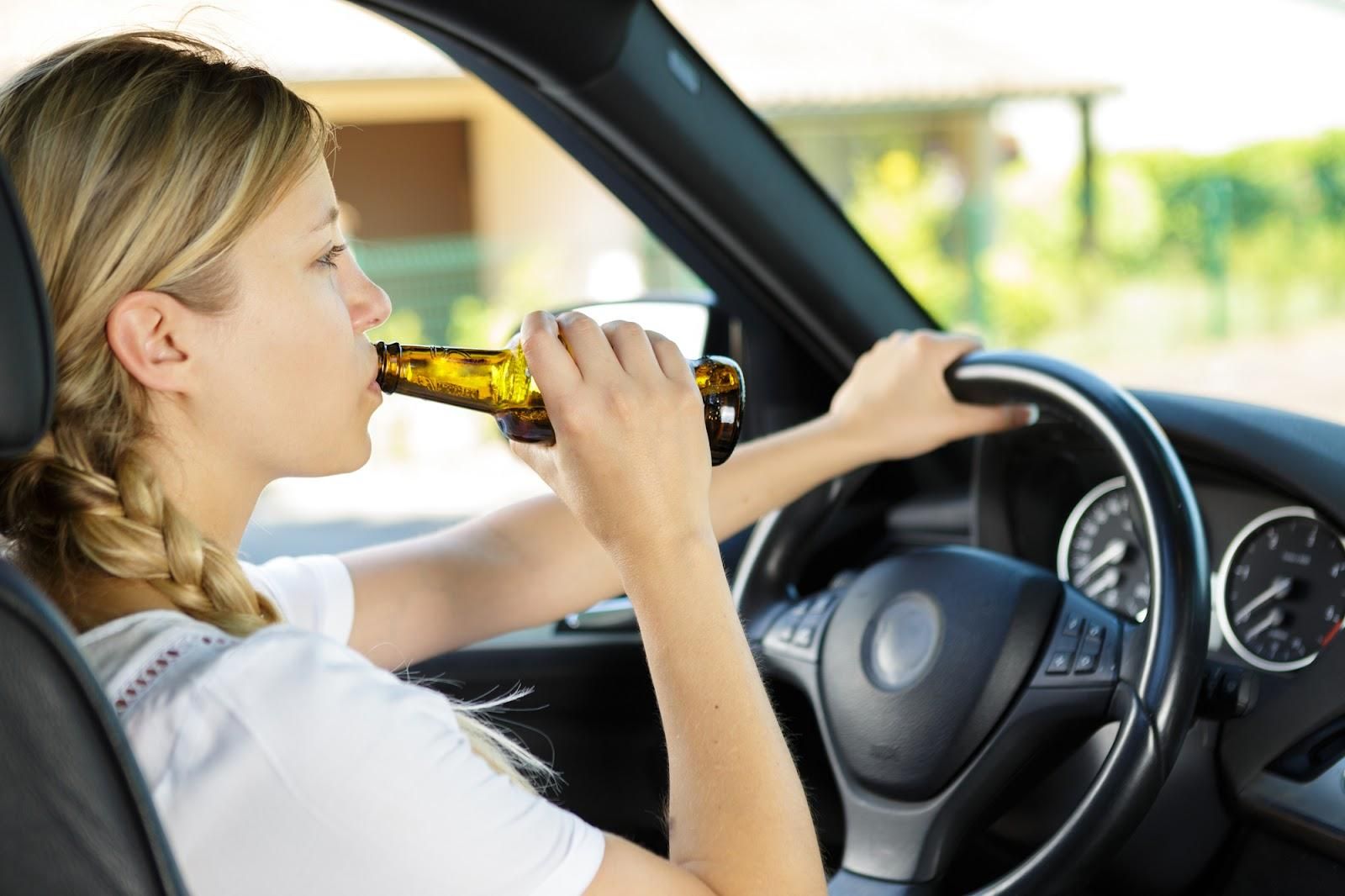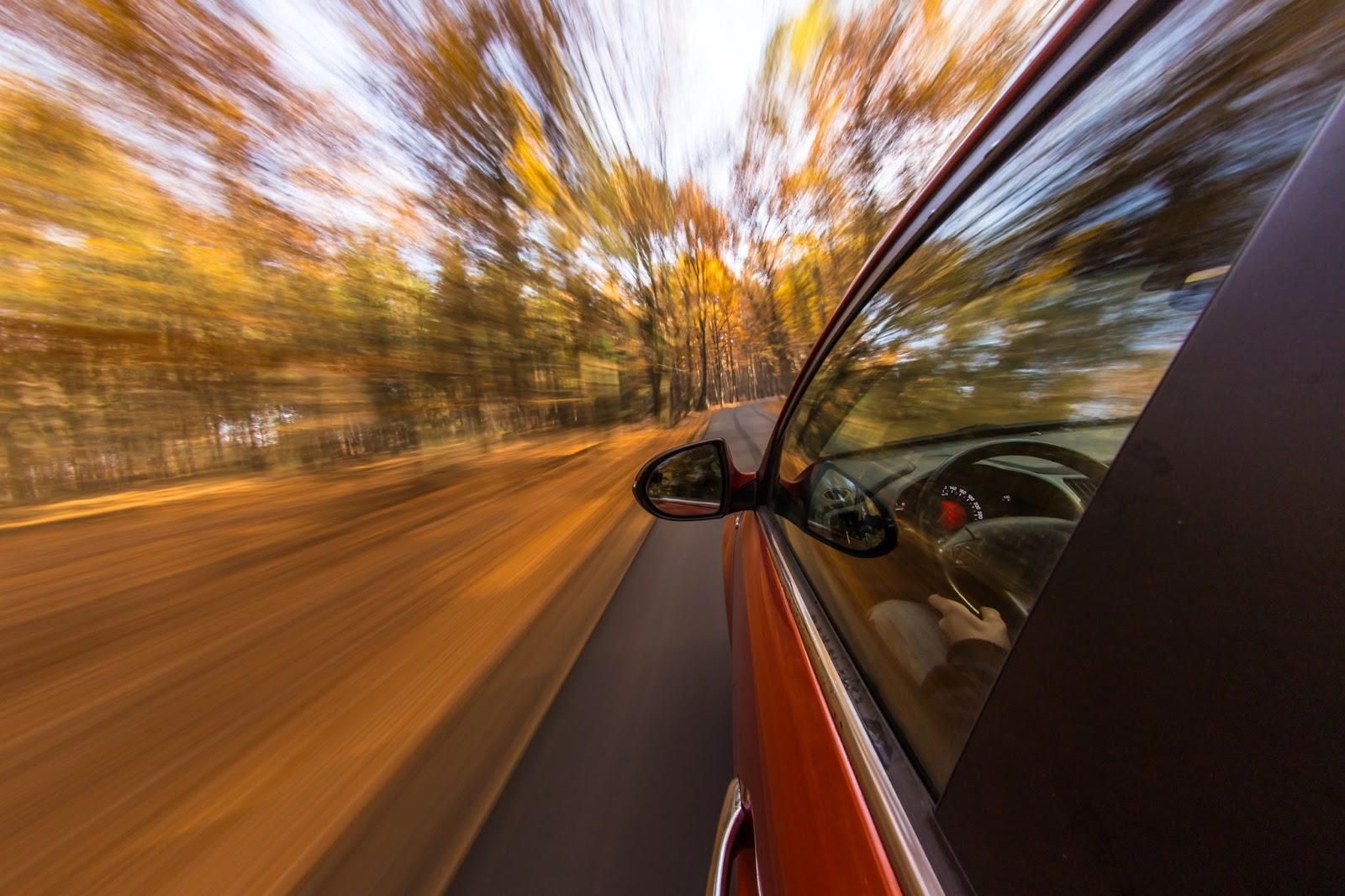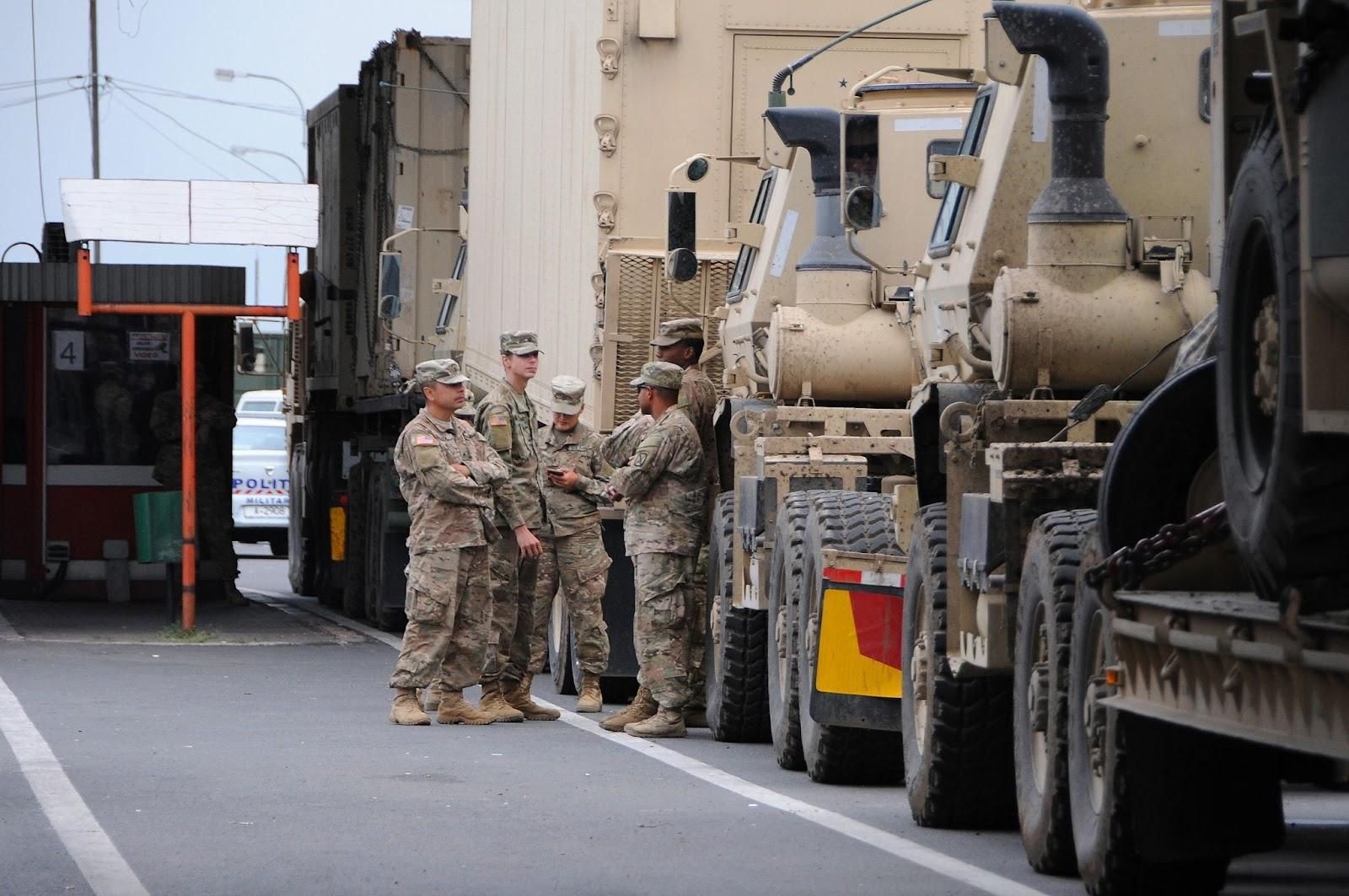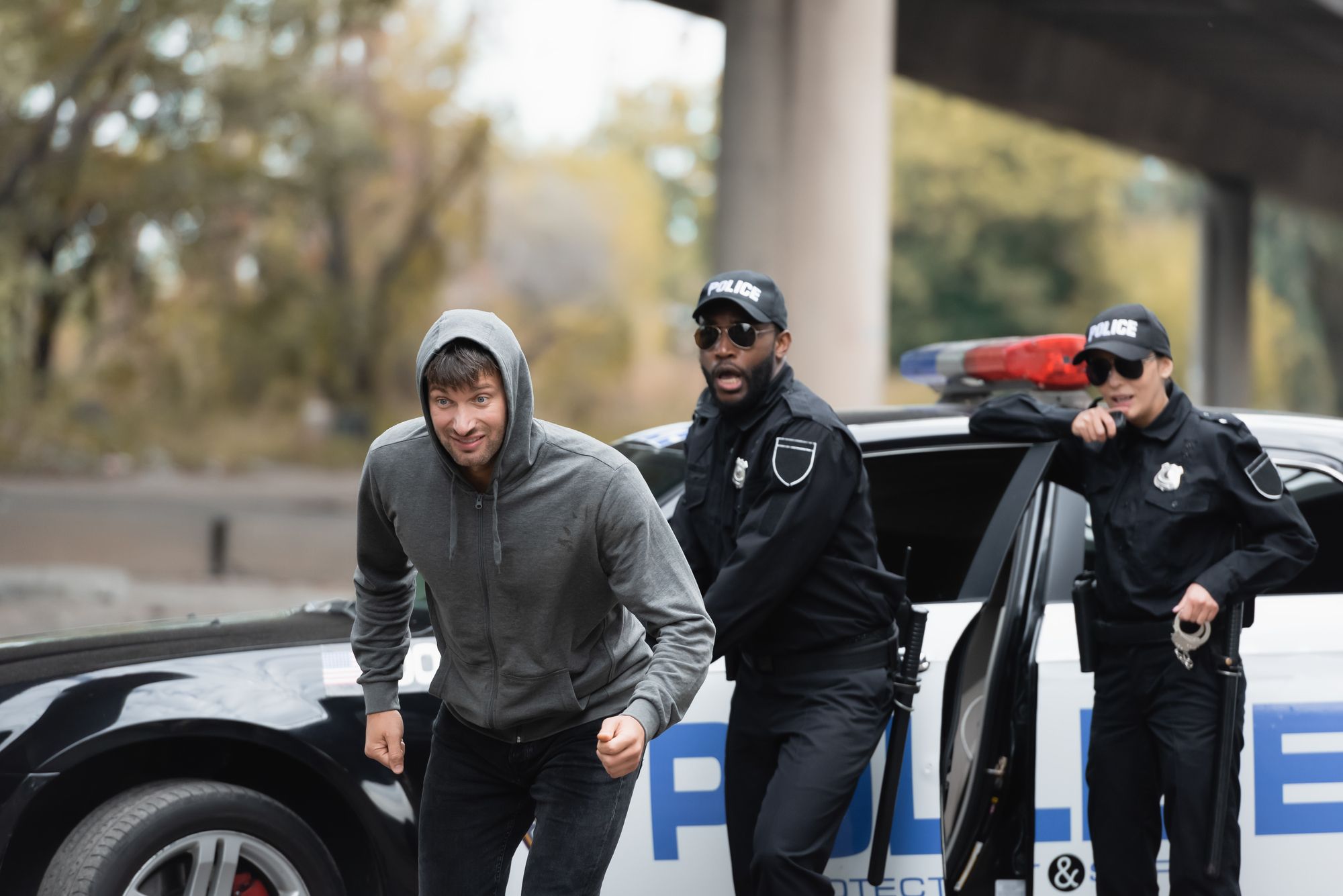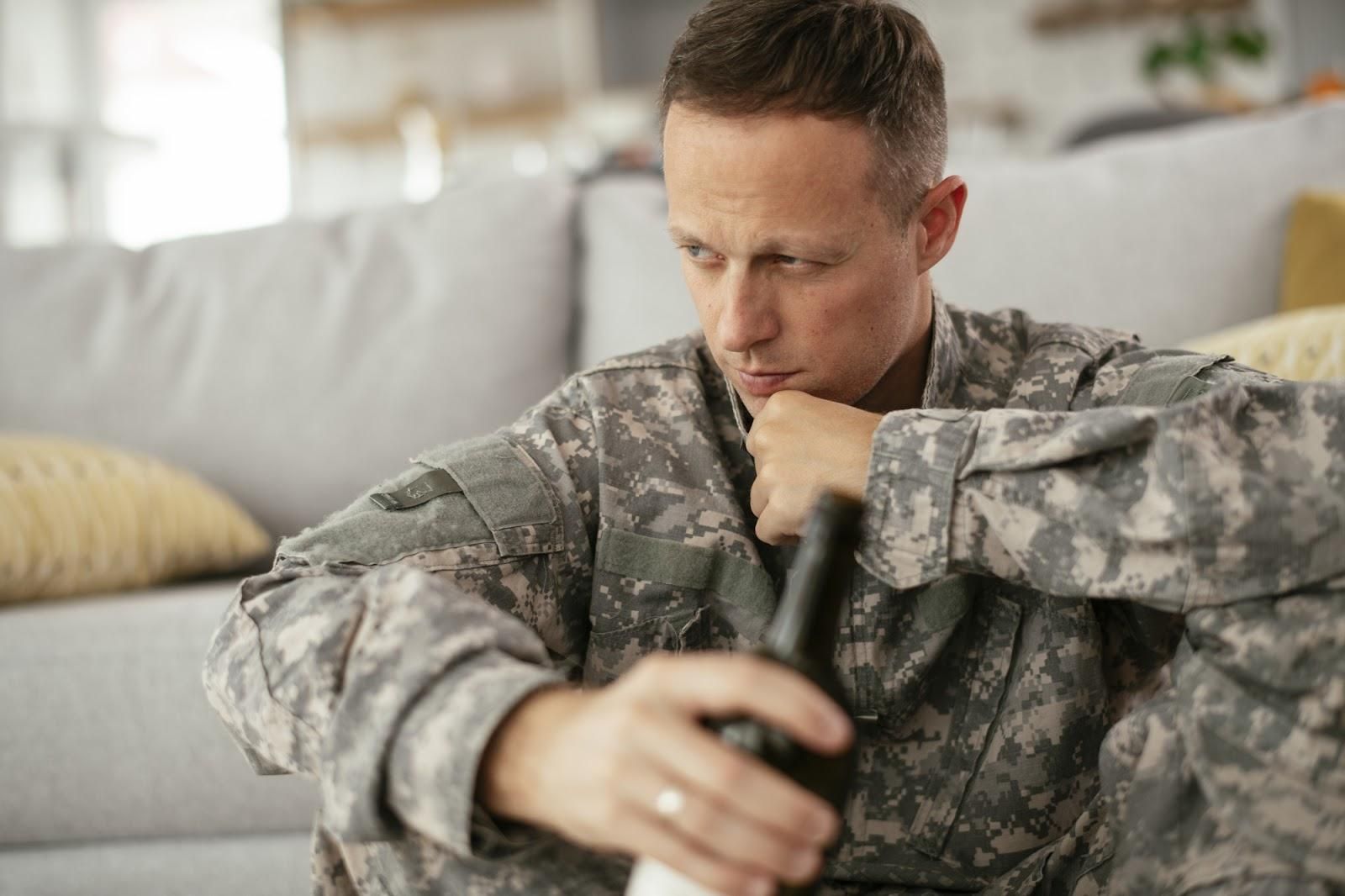Author: john
What To Expect From A DMV-Approved Driver Improvement Course
Voluntary vs. Involuntary Driver Improvement Courses
Motorists in Virginia may take driver improvement courses voluntarily, or the court may order them to take these courses. In addition, the Virginia Department of Motor Vehicles (DMV) may also require motorists to take driver improvement courses in certain situations.Voluntary Driver Improvement Courses Explained
A driver in Virginia may elect to take a voluntary driver improvement course to achieve certain benefits. First, students who successfully complete a DMV-approved driver improvement course can receive up to five “safe driving points.” These safe driving points count against demerit points, potentially allowing drivers to “cancel out” negative consequences associated with certain violations. Secondly, drivers may take driver improvement courses to earn certain insurance discounts. Only some auto insurance providers offer these discounts, and it makes sense to check with each insurance company before attempting this strategy. Note that according to the Virginia Department of Motor Vehicles, driver improvement courses “cost no more than $100” – and the insurance savings may be well worth this price. This strategy is particularly popular for those who face increased premiums after crashes or violations.Involuntary Driver Improvement Courses Explained
On the other hand, drivers may have little choice but to complete driver improvement courses in Virginia. First, a judge or court may order the driver to complete this course in order to have their ticket dismissed. Alternatively, completion of a DMV-approved driver improvement course could reduce the amount of a fine. The DMV may make similar demands, especially after drivers accumulate too many demerit points within a certain amount of time. Courts often order motorists to complete driver improvement courses for first offenses. If a driver successfully completes the course before the court date, the judge may view the certificate and decide to dismiss the case. Note that this does not apply to reckless driving charges in Virginia.How Does the Driver Improvement Course Work?
The Virginia DMV states that a driver improvement course helps motorists learn “defensive driving techniques” that could prevent future accidents. The entire course takes eight hours to complete, and motorists must complete all eight hours to receive their completion certificates. The DMV also states that drivers have 90 days to complete the course once ordered to do so. If they fail to earn their completion certificates within this 90-day window, they will lose the opportunity – and license suspension could soon follow.Can I Take My Driver Improvement Course Online?
The DMV states that drivers may complete their courses either online or at sites located throughout the state. Many drivers prefer to take the online version for obvious reasons, although the DMV reminds motorists to check with the court to confirm whether they will accept a certificate earned online. The DMV also states that drivers under the age of 20 can enroll in either online or classroom courses.Can I Get an Extention for My Driver Improvement Course?
It may be possible to get an extension for the 90-day time limit if drivers are attending college or serving in the military. To be eligible, service members must establish that they are either stationed outside of Virginia. Note that this exception also applies to “military dependents.” College students must also show that they are attending an institution outside of the state.Is the Driver Improvement Course in Virginia Easy?
Although the driver improvement course might seem like an easy way to escape fines, license suspensions, and other consequences, motorists should expect a challenge. Those who have successfully completed these courses describe them as “intensive,” and some say that the classroom lessons are easier than their online alternatives. There are various driving schools to choose from, and each may have its own unique approach to the educational process. Many split lessons into various chapters, each ending with its own quiz. Motorists should also expect a final exam of sorts. According to multiple online schools, drivers must score at least 80% on the final exam to earn their certificate of completion.Can I Fight My Traffic Charges Instead?
While the driver improvement course can help reduce or eliminate consequences for traffic offenses, it may not be necessary for some motorists. An experienced traffic defense attorney at Driving Defense Law may be able to call alleged traffic violations into question. Perhaps a traffic camera in Virginia malfunctioned and automatically issued an erroneous ticket. Perhaps an officer wrote a ticket with the wrong date or license plate number. Traffic tickets could be easier to challenge than many divers realize. Whatever the case may be, it makes sense to discuss various options alongside a lawyer before committing to the driver improvement course.Contact Driving Defense Law To Learn More about a DMV Approved Improvement Course Today!
Although a driver improvement course could be a viable strategy when facing traffic violations, it may not be the only option. The most appropriate course of action depends on the unique circumstances of each case, and it may help to discuss these specific factors with an experienced traffic attorney in Virginia. During a consultation, drivers can discuss whether or not the driver improvement course makes sense for them. To learn more about how a DMV-approved driver improvement course works, consider calling Driving Defense Law at (757) 929-0335.The Legal And Insurance Benefits Of Completing A Driver Improvement Course
What Are the Insurance Benefits of Driver Improvement Courses?
The insurance benefits for driver improvement courses vary depending on each insurance provider. Before attempting to lower premiums with this strategy, consider reaching out to the insurance provider. Alternatively, motorists may review the websites of their insurance providers for more specific information about discounts. According to the Virginia Department of Motor Vehicles, it is not possible to gain “driver safety points” and insurance discounts with a single completion certificate. Motorists may need to choose between insurance discounts and driver safety points upon completion of their courses.How Do Defensive Driving Premium Discounts Work?
According to various sources, driver improvement courses can save motorists up to 10% on auto insurance in Virginia. For many, this means that the course essentially pays for itself within a few months. Over the course of many years, successful completion of a driver improvement course may be able to provide thousands of dollars in savings. Again, this all depends on the specific insurance company and policy. In addition, insurance discounts are only possible for voluntary driver improvement courses. If a motorist is required to take one of these courses due to a court order or DMV hearing, they are not eligible for insurance discounts. Furthermore, insurance discounts may be tiered – and they may only last for a specific amount of time. Based on these varying factors, it may help to speak with both Driving Defense Law and insurance providers to determine accurate insurance benefits of driver improvement courses.Insurance Benefits for 55+ Driver Improvement Courses
There are separate driver improvement courses for elderly motorists in Virginia. Companies may refer to these as “mature driver courses.” They are reserved for drivers over the age of 55, and they may offer increased insurance benefits upon completion. Often, these insurance discounts provide savings for three years. Again, these benefits only apply to seniors who take the course voluntarily and forgo the safe driving points. Motorists who are over the age of 55 may wish to discuss specific course options alongside traffic attorneys in Virginia.Indirect Savings Offered by Driver Improvement Courses
Aside from premium discounts, driver improvement courses can offer more subtle cost-saving opportunities. The National Safety Council (NSC) states that defensive driving courses can reduce future traffic violations by up to 70%. With fewer violations, drivers can expect to pay less in fines. The NSC also points out that fewer violations lead to fewer accidents – and this can dramatically reduce insurance premiums. As most drivers know, a collision can increase premiums to a considerable degree. If the statistics show that driving courses reduce collisions, then it is reasonable to expect additional insurance savings.Legal Benefits of Driver Improvement Courses
Aside from insurance savings, driver improvement courses may also offer certain legal benefits. Those who face traffic tickets and similar penalties may be able to achieve positive outcomes with a relatively straightforward online course. Often, the cost of the driver improvement course is much lower than the potential fines.Driver Improvement Courses Can Provide Safe Driving Points
Drivers may voluntarily earn safe driving points after successfully completing their driver improvement courses in Virginia. This strategy can help drivers negate future demerit points, and it may allow them to avoid the legal consequences of future violations. A driver could earn five safe driver points after completing their course. This “balance” of five points counts against future demerit points, and it may allow drivers to avoid potential suspensions over a one or two-year period. Remember, 18 demerit points in a year generally leads to a suspended license. Five safe driver points effectively raises this threshold to 23 points. Motorists may also preemptively take driver improvement courses once they get close to the 18-point limit. For example, a driver might accumulate 17 points within 12 months before taking a driver improvement course – thereby reducing their tally down to 12.Driver Improvement Courses Could Be Required
Although there are numerous benefits associated with voluntary driver improvement courses, some motorists may have no choice but to take them. For example, a driver might be forced to take one of these courses after accumulating too many demerit points within a 12 or 24-month period. After certain violations, the court/DMV may also order drivers to complete driver improvement courses. Often, this serves as an opportunity to address the issue without excessive legal penalties. In some cases, judges may dismiss convictions or tickets after seeing that a driver has completed a DMV-approved course. First offenders are particularly likely to receive this offer from a judge. That being said, some traffic violations are much more serious than others. If a court convicts a driver of a more serious driving offense (like reckless driving in Virginia), it may not be possible to limit legal consequences with a driver improvement course. There are specialized, more extensive driver improvement courses for those charged with reckless driving in Virginia.Contact Driving Defense Law To Learn More About Our DMV-Approved Driver Improvement Course
While a driver improvement course may have numerous legal and insurance benefits, it is important to note that these benefits depend on the unique circumstances of each motorist. Senior drivers may have distinct insurance benefits to consider, and those facing reckless driving tickets may need more extensive driver improvement courses. These factors highlight the need to receive personalized guidance before signing up for a driver improvement course. To discuss specific circumstances in more detail, consider a consultation with experienced traffic law attorneys in Virginia. Driving Defense Law offers its own DMV-approved driver improvement course, and this law firm may be able to help motorists target their unique needs. Consider calling (757) 929-0335 to continue this conversation in more detail.How A Driver Improvement Course Can Help With Traffic Violations
A Driver Improvement Course Helps Prevent Demerit Points
Many motorists in Virginia take driver improvement courses as a voluntary, preventative measure. If a driver successfully passes their course, they may earn five “safe driver points.” The DMV subtracts safe driver points from demerit points, potentially allowing a motorist to commit more traffic violations without negative consequences. With a balance of five safe driver points, a motorist would only start earning demerit points after committing two violations worth three points each. In other words, the safe driver points act as a “buffer” against future violations. Note that a motorist may only earn safe driver points once every two years, and they may only accumulate a maximum of five safe driver points at any given time. In addition, a motorist automatically earns one safe driver point per year for avoiding all accidents. According to the Virginia Department of Vehicles (DMV), 18 demerit points within a calendar year trigger an automatic license suspension for 90 days. In addition, a motorist with 18 points per year must complete a driver improvement course before regaining their license. The same rules apply to drivers who accumulate 24 demerit points within two years. 12 demerit points per year do not trigger a suspension, but a driver improvement course becomes mandatory to retain driving privileges.A Driver Improvement Course Could Let You Keep Driving
Although driver improvement courses are mandatory for motorists who accumulate 12 demerit points per year, they may also be helpful for those who are worried about crossing this threshold in the near future. For example, a motorist might have ten demerit points on their record. They might realize that a driver improvement course will become mandatory after just one more three-point violation. In addition, they might realize that after a few more violations, they could completely lose the right to drive. This motorist might choose to preemptively take the driver improvement course, thereby pushing their total demerit points down to five. This could provide considerable peace of mind while reducing the chances of a suspension in the future. Note that if this motorist had committed another violation, the driver improvement course would have likely been mandatory anyway. In other words, the motorist has nothing to lose by taking the improvement course early – and they have everything to gain. That being said, a driver improvement course may be more challenging than many motorists realize. The course covers topics like road rage, intoxication, highway rules, weather conditions, and many others.A Driver Improvement Course Could Reduce Your Fines
Although voluntary driver education certainly has its benefits, some motorists may have little choice in the matter. That being said, a driver improvement course can still help motorists avoid more serious traffic consequences. Often, courts allow motorists to complete driver improvement courses in exchange for lower legal fees or fines. As long as the motorist meets the specific requirements of the court, they can present their completion certificate and pursue lower overall costs associated with violations. Note that the court is much more likely to take this step for first offenders. A motorist who has committed numerous prior violations is less likely to enjoy this type of leniency. Even first-offenders may not be eligible if they have committed particularly egregious traffic violations.Can I Get a Ticket Dismissed With A Driver Improvement Course?
In addition to reducing fines, the completion of a driver improvement course could also cause the court to dismiss tickets entirely. Again, this is usually reserved for first-time offenders, and those who are facing reckless driving charges may not be eligible. In addition, motorists should make sure that their course meets the specific requirements set forth by the court. Motorists may wish to speak with Driving Defense Law to receive targeted guidance based on their specific circumstances. For example, there are specific driver improvement courses for commercial drivers with commercial drivers licenses (CDLs). There are also specific driver improvement courses for “mature drivers” (those over the age of 55). Finally, those facing reckless driving charges may face more extensive education programs that are 12 hours long instead of the standard eight hours. Many motorists take driver improvement courses to receive insurance premium discounts. Although this may be possible, motorists should know that they may need to choose between earning insurance discounts or safe driver points with a single completion certificate. In addition, these additional benefits may not apply to those who must take driver improvement courses as part of a court order or DMV requirement. The court generally decides whether a driver will earn safe driver points in this case, and these points are not guaranteed.Contact Driving Defense Law To Find Out More About Our DMV-Approved Driver Course Today!
Once motorists in Virginia understand the potential benefits of driver improvement courses, they may begin the signup process. Numerous organizations offer driver improvement courses, but it is important to select a DMV-approved option. A specialized course may also be necessary, especially for mature drivers or those facing reckless driving charges. Before signing up for a driver improvement course, it may be worth discussing the various options alongside an experienced traffic law attorney in Virginia. Driving Defense Law can help motorists assess their options, and this law firm also offers its own DMV-approved driver defense course. To discuss the next steps, consider calling (757) 929-0335 today.Teen Drinking And Driving
What Is Underage DUI?
Teen drinking and driving is defined as any driver under the age of 21 operating a motor vehicle after consuming alcohol, or operating a vehicle with a blood alcohol content (BAC) of more than 0.02%. This may occur when teens opt to risk driving intoxicated for fear of upsetting their parents by calling for a ride. In addition to this, because of underage drinking laws, many teens who drink choose to do so in remote or hidden locations, and the impairment of alcohol may lead them to make reckless decisions that can lead to great harm.Zero Tolerance Policy
While the legal limit for adults is a BAC of over 0.08%, the rules are different for teen drinking and driving. The state of Virginia imposes a much lower limit on underage drivers to send a clear message that underage drinking and driving will not be tolerated. This means that, for minors, operating a vehicle with a BAC of over 0.02% is enough to be charged with a DUI. In addition to this, the consequences for a DUI or DWI may be more severe for minors, as they are also breaking underage drinking laws as well as a traffic violation.Penalties for Underage DUI
There are various consequences, some direct punishment for lawbreaking and some unintended results, that may come from teen drinking and driving. These may include fines, suspension of licenses, and even jail time according to the Code of Virginia. Teen drinking and driving is a complex subject, as it involves multiple infractions of the law. An experienced DUI lawyer from Driving Defense Law can help to clarify the legal particulars surrounding a case.Fines and Penalties
A teen convicted of a DUI may be required to pay fines of up to $2,500 and a minimum of $500. In addition to this, they may be sentenced to jail time up to a year. For higher BACs of 0.15% and 0.20%, there is also a minimum required jail time. In many cases, the offender must also complete a certain number of community service hours, depending on the decision of the judge.License Suspension
Underage DUI offenses will result in a suspension of license for a period of one year from the date of conviction. Depending on the severity of the offense, this suspension may be longer if the offender has violated other statutes. However, there are certain circumstances in which a teen driver may be issued a restricted license that provides for them to drive between home, school, and court-appointed meetings. To obtain this license, the individual may need to attend a Virginia Alcohol Safety Action Program to qualify.Higher Insurance Rates
In addition to the court’s decisions on punishment, the teen may also experience increased insurance rates. Many young people already have very high insurance rates, but a DUI will make those rates climb even higher. Some drivers may need to get a special form of coverage called a Financial Responsibility Certificate. This is especially relevant in Virginia, as DUI offenses remain on record at the DMV for 11 years, which may mean these increased rates stick around until the charge finally leaves the record.Repeat Offenses
Teen drinking and driving offenses are serious, but they become even more so on second and third offenses. For repeat offenses, drivers can have their licenses suspended for longer, and face greater fines, and longer jail time. License suspension can be up to three years on a second offense, and third-time offenders may even be facing felony charges. Complying with restrictions and being responsible can not only prevent further fines and legal hardships but can also protect the life and property of others on the road.Exceptions to Underage Drinking Laws
While there are no exceptions to teen drinking and driving laws, there may be a possible exception to underage drinking. If the parents or guardians of a minor consent to their responsible consumption of alcohol inside their own house, the minor may be allowed to partake. However, in the event of an underage DUI, this law will not exempt one from the consequences of teen drinking and driving.Frequently Asked Questions
Listed below are some frequently asked questions regarding teen drinking and driving.Are Minors Required to Submit to Breathalyzer Tests?
Just as adults are, minors are required to submit to breathalyzer tests. The implied consent law means that anyone driving a motor vehicle consents to having their blood tested for drugs, alcohol, or other chemicals.Can a DUI Affect College Scholarships for Students?
The effects of being convicted of a DUI or DWI may not stop in the courtroom. Many schools and colleges have underage drinking policies, and teen drinking and driving may result in unintended consequences, including loss of scholarship.Contact a Virginia DUI Attorney Today
Teen drinking and driving is a serious matter in Virginia. In 2022, 27% of all traffic fatalities were alcohol-related. In addition to that, teen alcohol consumption is strictly forbidden except under very specific circumstances. By driving under the influence, an individual endangers not only their license and freedoms but also the lives and property of themselves and others. Staying sober on the road and being responsible with substances is incredibly important. By promoting responsibility and protecting those on the road, people can create a safe environment and reduce traffic fatalities and property damage. For more detailed information on the complexities of Virginia traffic law and DUI offenses, consider speaking with a DUI attorney from Driving Defense Law who will serve you with integrity and diligence. Consider scheduling a consultation by calling the office at (757) 929-0335.Speeding Tickets 101: How To Avoid And Contest Them
Is it Only Speeding if You Go More Than 10 Mph Over the Limit?
Exceeding the posted limit at any time is unlawful. A driver could potentially go one mile per hour (mph) over the posted limit and face the possibility of a speeding ticket. That being said, statistics show that this is highly unlikely. The County of Prince George states in the space of a single year, approximately 40 tickets involve drivers going less than five mph over the posted limit. The general consensus among drivers is that as long as they do not exceed the posted limit by 10 mph, they cannot face tickets. Again, this is technically untrue – as going over the limit at any time can result in a ticket. Still, statistics show that only a small minority of tickets each year involve drivers going less than 10 mph over the limit. Drivers are statistically more likely to face a ticket if they exceed the speed limit by more than 10 mph. In addition, traffic authorities issue the majority of speeding tickets to drivers who exceed the limit by between 15-19 mph.Is Speeding a Criminal Offense in Virginia?
Speeding can be either a traffic infraction or a criminal offense, depending on the circumstances. If a driver breaks the speed limit by less than 20 mph, they usually receive a traffic ticket. Once they exceed this threshold, traffic authorities generally see this as “reckless driving” – a criminal offense. Under § 46.2-868, reckless driving is a class 1 misdemeanor – and it is possible to face a 12-month jail sentence with a fine of up to $1,000. In practice, however, excessive penalties are rare for those convicted of reckless driving. Further criminal penalties may be possible if motorists commit additional offenses while speeding – including texting or driving without a valid license. Those who face criminal charges for speeding may wish to consider formulating a defense strategy alongside Driving Defense Law.How to Avoid a Speeding Ticket
The easiest way to avoid a speeding ticket is to respect the posted limit. Remember that certain areas, such as construction sites and school zones, are always subject to lower limits than normal roadways. However, this preventative approach may be impossible for drivers who already face tickets – and the only remaining option might be a more “reactive” strategy. Always comply with traffic authorities and pull over when directed. Next, answer any questions and provide the necessary license and registration information. At this point, a driver might attempt to convince the officer to let them off with a warning. Generally speaking, this requires the admission of guilt and a polite request. While this strategy can be successful, it also carries an element of risk. If a driver admits fault, their statements could be used against them at a later date. Many defense attorneys recommend remaining silent – especially in the case of criminal traffic offenses (such as reckless driving).Can You Contest a Speeding Ticket in Virginia?
After a driver receives a speeding ticket, they may have the option to contest it. This process depends on the circumstances of each ticket, and various steps may be necessary. For example, a criminal reckless driving offense goes through the criminal court, while a civil traffic infraction generally goes through the Department of Motor Vehicles (DMV).How to Contest a Speeding Ticket Through the Virginia DMV
Drivers can contest their speeding tickets through the Virginia DMV. A hearing may be necessary, particularly if the driver has had their license suspended due to accumulating too many demerit points. A traffic defense lawyer can represent the driver during their hearing, perhaps pointing out errors or inconsistencies in police reports. A simple error on the ticket – such as an incorrect license plate – can lead to dismissal. Another route is to accept the mistake and ask the DMV for leniency. Consider taking a defensive driving course, which can reduce demerit points. The DMV may be particularly likely to exhibit leniency toward a driver who needs their license to earn income.How to Contest a Speeding Ticket Issued by a Speed Camera
Speed cameras are relatively common in Virginia, but they are only allowed in construction zones and school zones. These cameras use automation, artificial intelligence, and various other technologies to capture speeding drivers with virtually no human involvement. Virginia residents may receive letters in the mail informing them of their speeding offenses, and these letters often include images of their vehicle captured during the alleged offense. There are various ways to contest a speeding camera ticket. If the alleged speeding offense occurred in a school zone, a driver could show that the school was closed at the time. Generally speaking, drivers must exceed the limit by at least 10 mph to qualify for one of these automated tickets. These cameras are also prone to various errors, and an experienced traffic defense lawyer in Virginia may be able to help expose such mistakes.Contact the Experienced Virginia Speeding Ticket Attorneys at Driving Defense Law
Drivers may face various consequences after exceeding the posted limit in Virginia, and it may be difficult to determine what happens next. Online research may fail to provide guidance targeted to each unique set of circumstances. In contrast, an experienced traffic defense attorney may be able to provide more accurate, personalized legal advice. A consultation can provide an opportunity to speak about the next potential steps. Consider continuing this discussion by calling Driving Defense Law at (757) 929-0335.License Suspensions And Military Members: Navigating The Legal Process
A license suspension can negatively affect virtually any career, including a military career. Servicemembers in Virginia may lose the right to operate a range of military and civilian vehicles after a license suspension, and a revocation of these privileges applies to both on and off-base driving. Resolving a license suspension makes more sense than continuing to drive without proper authorization, a risky endeavor that can lead to increasingly serious consequences. Servicemembers have the option to work with experienced traffic ticket defense lawyers in Virginia and address their suspended licenses. Contact Driving Defense Law today at (757) 929-0335 to discuss the legal process ahead.
Why Might My License Be Suspended in Virginia?
The Virginia Department of Vehicles lists many reasons for a potential license suspension. One of the most common reasons is failing to pay certain fees – including uninsured motor vehicle fees and child support. However, it is now impossible to face a license suspension simply for failing to pay fines – including traffic tickets. Unpaid toll fees can still lead to suspensions. Drivers may also face license suspensions if they fail to properly insure their vehicles.
Reckless driving convictions can lead to license suspensions, and drivers may also lose their licenses for providing alcohol to minors or intoxicated people. In addition, drivers may lose their driving privileges if they accumulate a certain number of “demerit points” on their licenses. Finally, a driver might face a suspended license while suffering from mental or physical conditions that impair their ability to drive.
Military Licenses and Civilian Licenses Are Not the Same
When dealing with license suspensions, it is important to distinguish between military licenses and civilian licenses. While most soldiers possess both, it is technically possible to drive military vehicles without first obtaining a civilian license. There are numerous accounts of soldiers (usually teenagers) driving military vehicles such as Strykers before learning how to drive a car. There are even known cases of tank drivers in the US Army who have never driven a car.
According to the Department of Defense, a soldier may lose their military driving privileges for various reasons. They may be stopped by law enforcement personnel on military bases (military police) – either while driving a normal vehicle or a military vehicle of some kind. During these stops, on-base law enforcement may confirm that the driver is authorized to operate the specific vehicle in question – whether it is a tank, armored personnel carrier, or passenger sedan. Law enforcement may also determine possible intoxication levels with blood, breath, or urine tests. In the case of a violation, the installation commander may impound the vehicle, suspend on-base driving privileges, or both.
A Civilian License Suspension Causes Military Suspension
The Army Driver and Operator Standardization Program states that if a soldier has their civilian license suspended, the Army will automatically suspend their military license as well. In the Army, this license is called an “OF 346” or a “DA Form 5984.” A suspended civilian license will make it impossible to drive any motor vehicle on-base, including military and civilian vehicles. This highlights the need to work with an experienced traffic ticket defense lawyer in Virginia after a civilian license suspension, especially for soldiers who focus on operating military vehicles. Military members might consider contacting Driving Defense Law after a civilian driving license suspension for further guidance.
What Happens if I Drive on a Suspended License?
The consequences of driving on a suspended license depend on various factors. First, the military (not civilian police) generally enforces consequences for soldiers who drive with suspended licenses on-base. Driving on a suspended license is unlikely to result in a court-martial, but it can still lead to Article 15 punishments. While a court-martial is equivalent to a criminal charge in civilian life, an Article 15 punishment is more like a non-criminal infraction. That being said, Article 15 penalties can still be quite serious – and it is possible to lose driving privileges for years after driving on-base with a suspended license.
Can I Fight a Suspended License While in the Military?
Drivers may be able to resolve their Virginia license suspensions in various ways. The most appropriate action plan depends on the circumstances of the suspension, and some methods may be easier than others. For example, the license suspension may have been caused by a clerical or database error – and a quick phone call could resolve the issue. Some drivers may be able to address their suspensions by paying outstanding fees, such as child support or tolls. Others can renew expired insurance to get their licenses back. Often, these mistakes are purely accidental and easily fixed.
Other strategies may be more complex. If a soldier accumulates too many demerit points, they may need to fight the ticket that pushed them over the edge. For example, a speeding ticket in Virginia is generally a 3-point offense. If a soldier successfully fights that ticket, they may be able to push their demerit points down to acceptable levels and recover their driving privileges. The same logic applies to fighting a reckless driving conviction in Virginia.
Fighting a Military Driver’s License Suspension
If a soldier specifically loses their military driving license (OF 346 or a DA Form 5984), they may need to focus on the circumstances of the situation. For example, they may have faced consequences for crashing an armored personnel carrier into a wall. However, a lawyer who has experience with military justice may be able to raise an effective defense. Perhaps the soldier was never properly trained to operate the armored personnel carrier, and they were forced to get behind the wheel by an ill-informed superior officer.
Contact the Experienced Military License Suspension Attorneys at Driving Defense Law Today
A license suspension has the potential to affect military careers, but there is no need to simply sit back and allow these consequences to occur. Military members may be able to resolve this issue, and the most appropriate response plan depends on the unique factors at play. After online research, service members may discuss their specific circumstances alongside an experienced license suspension lawyer in Virginia. Remember, the penalties for driving on a suspended license can be severe in both the military and civilian life. Learn more about your legal rights after a license suspension as a military member with an experienced attorney at Driving Defense Law, and consider calling (757) 929-0335 to get started with a consultation.
Recent Dismissals & Reductions by Attorneys Madeline Loving and Steven Thomas – September & October 2024
Attorney Madeline Loving secured the following successful case results for our clients in September & October:
- Reckless Driving 78/55 – REDUCED to Improper Driving
- Improper Lane Change- DISMISSED
- Reckless Driving 77/55- NOT GUILTY
- Reckless Driving 90/55- DISMISSED
- Reckless Driving 60/35- REDUCED to Simple Speeding
- Speeding 76/55- DISMISSED WITHOUT COSTS
- Reckless Driving (Driving Too Fast For Conditions) – REDUCED to Improper Driving
- Reckless Driving (General) – REDUCED to Improper Driving
- Reckless Driving 88/60- REDUCED to Simple Speeding
- Speeding 71/50- REDUCED to Speeding 1-9mph over
- Reckless Driving 85/55- REDUCDED to Speeding 20mph over
- No Drivers License- DISMISSED
- Improper Lane Change (Commercial Drivers License) – NOT GUILTY
- Reckless Driving 80/55 (Commercial Drivers License) – REDUCED to Simple Speeding
Here are recent reviews from Madeline’s clients:
- “I had a GREAT experience with Madeline Loving at Driving Defense Law while dealing with my speeding ticket. I spent time looking for a good law office to help with this matter. From our first consultation they were professional, communicative, and knowledgeable. Thanks to Madeline, my ticket was DISMISSED! I appreciate her tremendously. If you are ever in the same situation, I would recommend this law firm and this lawyer.” –David, Google Review
- “Word cannot express my gratitude to Madeline Loving, as my lawyer. My daughter and I were involved in a terrible car accident. And though I believed we were victims of road rage; I was issued a ticket. Madeline and her law firm’s expertise and professionalism gave me the reassurance and confidence that my case will have the outcome to prove that I should have not been issued a ticket. Madeline’s expert knowledge of the law and her compassion for her clients exemplifies the “Art and Science of the law.” My ticket was dismissed, including court cost! – Thank you, Madeline and Driving Defense Law Team” – Michelle, Google Review
Attorney Steven Thomas secured the following successful case results for our clients in September & October:
- Drunk in Public and Reckless Driving (General)- DISMISSED
- Reckless Driving 83/55- REDUCED to Speeding
- Driving without Motorcycle Endorsement- DISMISSED
- Reckless Driving 70/45- DISMISSED
- Following Too Closely and No Insurance- DISMISSED and NOT GUILTY
- Speeding 71/55 – REDUCED to Defective Equipment
- Failure to Yield – DISMISSED
- Reckless Driving 69/45- REDUCED to Improper Driving
- Reckless Driving 86/60- REDUCED to Improper Driving
- Reckless Driving 82/55- DISMISSED
- Reckless Driving (General)- REDUCED to Improper Driving
- Reckless Driving 83/55- REDUCDED to Improper Driving
Here are recent reviews from Steven’s clients:
DISCLAIMER – EACH CASE IS UNIQUE AND CASE RESULTS DEPEND ON YOUR INDIVIDUAL SITUATION. CASE RESULTS DO NOT GUARANTEE OR PREDICT A SIMILAR RESULT IN ANY FUTURE CASE UNDERTAKEN BY THE LAWYER. The testimonials on this website reflect the real-life experiences and opinions of our clients. However, the experiences are personal to those particular clients, and may not necessarily be representative of all clients. We do not claim, and you should not assume, that all clients will have the same experience. Your outcome may vary. At Driving Defense Law, we are ready and prepared to defend your rights and zealously advocate on your behalf. Our team cares about you and will stand strong by your side. Call Driving Defense Law NOW for a free consultation to evaluate your options. Do not pre-pay your traffic ticket! Pre-paying your ticket or representing yourself in court can have long term consequences. You may encounter costly fines, increased insurance rates, and sometimes even jail time. Know your options! Our experienced attorneys know how to navigate the local courts in Virginia, especially the Hampton Roads area including Norfolk, Virginia Beach, Chesapeake, Portsmouth, Suffolk, Isle of Wight, Southampton, Hampton, Newport News, Accomack and Northampton. Our traffic attorneys will evaluate your options and create a gameplan to dismiss or minimize your offense. Contact now for a FREE case evaluation!
- “I called a few different attorneys before deciding on Steven. Everyone in his office was professional, helpful and incredibly personable, which I really appreciated during a very difficult time. He is a very motivated, skilled and thoughtful attorney who will be passionate about your case and getting the best outcome for you.” –Candace, Google Review
- “Ask for/request: Steven Thomas, DWI Attorney! Both, Steven and his admin staff were truly an amazing team. Their communication and partnership is admirable. My first DUI went to trial and Steven kept his promise to me when he said he’ll do his best and that he’s got my back! My DUI charge was dropped! Steven came to trial so organized to the fact that even the judge had to take time to compliment his sufficiency. I would recommend Mr. Thomas to anyone facing a DUI/DWI charge because he will do his best to fight for his client until there’s nothing left to fight for. Recommend 10/10!” –Natayvia, Google Review
Legal Defenses Against Eluding The Police Charges
Eluding the police is a serious offense that can carry significant penalties, including fines, jail time, and a permanent mark on your criminal record. If you find yourself facing charges of eluding the police in Virginia, understanding the potential defenses that may be available in your case may help you to make informed decisions about how to proceed. A skilled criminal defense attorney with Driving Defense Law may be able to review your case and help you evaluate your legal options. Our firm offers free case evaluations throughout Virginia, so give our central Norfolk office a call today at (757) 929-0335.
What Is the Charge of Eluding Police in Virginia?
Drivers often follow instructions from law enforcement personnel without giving their own obedience much thought, for instance when awaiting the hand signals of a police officer “waving traffic” to prevent further injuries at the scene of a crash. In reality, however, Virginian motorists are required by law to comply with the directions of law enforcement officers when operating their vehicles on the state’s roadways. A driver who fails to act promptly in response to a law enforcement officer’s signaled instructions – whether visual or verbal – may be charged with a violation of § 46.2-817 of the Code of Virginia. Known variously as “disregarding signal by law-enforcement officer to stop” and “eluding police,” an alleged violation of § 46.2-817 constitutes a serious charge with limited options for legal defense and steep penalties in the case of a conviction.
“Willful and Wanton” Disregard
An individual who ignores a visual or audible signal to stop from a law enforcement officer and continues driving may be charged with eluding the police if the driver willfully and wantonly ignores the signal. Under § 46.2-817(A), the driver may also be charged with a violation if he or she departs the vehicle but, instead of surrendering to law enforcement, attempts to flee the scene on foot; § 46.2-817(B) does not include provisions for suspects fleeing on foot, but addresses two additional contingencies:
- The driver’s interference with the operation of the law enforcement vehicle
- The driver’s endangerment of other persons during the attempt to elude police
The “willful and wanton” qualification for a driver’s “disregard” of a signal from law enforcement personnel to stop can be important in the construction of a legal defense against eluding the police charges if the driver is able to make the case that he or she did not realize the signal to stop was directed at him or her; note that this defense may become somewhat more difficult to support if the driver left the vehicle and continued on foot, as prosecutors (and potentially courts) may take the switch as evidence that the individual in question was aware of the pursuit and left the vehicle in an attempt to “lose” the officer or officers.
Mandatory License Suspension – Minimum Requirements
Regardless of whether the individual departs the scene in the vehicle or on foot, once charged the driver will face significant penalties if convicted, including a mandatory suspension of his or her driver’s license. The minimum suspension period is 30 days unless the maximum speed attained by the driver during the chase reaches 20 miles per hour above the legal speed limit. Violations of § 46.2-817(A) or § 46.2-817(B) in which the driver is convicted of having, during the chase, exceeded the posted speed limit by at least 20 miles per hour have their mandatory minimum period for suspension of driver’s license increased to 90 days.
Severity of Charges for Eluding the Police
Violations of Va. Code. Ann. (2023) § 46.2-817(A) are charged as Class 2 misdemeanors. Although, unlike paragraph (A), Va. Code. Ann. § 46.2-817(B) does not include a provision for charges of eluding the police on foot, (B) applies Class 6 felony charges to drivers who meet the “willful and wanton” criteria in their refusal to obey a signal from an officer of the law to stop, and proceed to operate their motor vehicles in ways that either impede the normal operations of the law enforcement vehicle or endanger other persons (whether law enforcement personnel or bystanders to the incident). § 46.2-817(C) escalates the severity of the charges to a Class 4 felony if the law-enforcement officer is killed as a “direct and proximate” result of the pursuit – but the increase in severity is applied only if the defendant is convicted of violating § 46.2-817(B).
Affirmative Defense to Eluding Police Charges
Anyone charged with a crime in the United States has the right to a legal defense, which may be prepared and presented by an attorney if the defendant chooses to exercise his or her Constitutional right to legal counsel. In most instances, the preparation of a defense in criminal cases where the defendant wishes to plead “not guilty” will consist largely of collecting and analyzing evidence that raises doubts about whether the defendant actually committed the crime of which they are accused. Occasionally these defense preparations may involve gathering evidence of extenuating circumstances to show that the defendant should not be held responsible for all of the consequences stemming from their alleged acts.
What Is an “Affirmative” Defense?
There are a few situations, however, in which the law provides for the possibility of what is known as an “affirmative defense.” An affirmative defense, according to Cornell Law School’s Legal Information Institute (LII), is one which negates the criminality of the defendant’s alleged actions in a criminal case, or the defendant’s legal responsibility for torts in a civil trial. In a criminal case, an effective affirmative defense will mean that the defendant is absolved of the charges even if the prosecution succeeds in proving that the person on trial actually committed the acts of which they are accused. Given the extraordinary potential of affirmative defenses, it is no surprise that they are held to a higher standard than most other defense strategies, in civil or criminal courts: The defense holds the burden of proof for showing that the affirmative defense applies, in much the same way that the prosecution or plaintiff normally holds the burden of proof for showing that the defendant really did what they are accused of doing (in a criminal trial) or really owns legal responsibility for the plaintiff’s damages (in a civil action).
Pursued by a Person Other Than a Law-Enforcement Officer
Paragraphs (A) and (B) of Va. Code Ann. (2023) § 46.2-817 both explicitly provide for an affirmative defense. The affirmative defense is the same in either case and is based on acknowledgment of the possibility of misrecognition under the often unpredictable conditions of the real world. The bar is set high, but defendants who can show that they reasonably believed themselves to have been fleeing pursuit by someone other than a law enforcement officer have an affirmative defense under Virginia law. For obvious reasons, this affirmative defense will not be an appropriate legal strategy in all circumstances, so consider reviewing your case with an experienced Virginia traffic defense attorney from Driving Defense Law before you move forward with your legal defense.
Other Legal Defenses
When the affirmative defense of believing oneself to be pursued by someone other than a law enforcement officer is not available, there may still be other legal defenses available. The “willful and wanton” disregard requirement may prompt a defense attorney to argue that the defendant was unaware of the law enforcement officer’s signal, or that the defendant recognized the signal but understood it to be directed at someone else. Other legal defenses may also be appropriate, depending on the circumstances, so you may wish to speak with a Virginia defense lawyer before you enter a plea.
Consult With a Virginia Defense Attorney to Learn Your Legal Options After Eluding Police in Virginia
Eluding the police charges in Virginia can range from a Class 2 misdemeanor to a Class 4 felony and carrying commensurately stiff penalties in the event of a conviction. Mounting effective legal defenses against charges of eluding the police can be difficult, and the strategies that make the most sense will depend on the particulars of your situation. Consider scheduling a free case evaluation with an experienced Virginia attorney from Driving Defense Law to review the details of the prosecution’s case against you and discuss your legal options going forward. Call our Norfolk office from anywhere in Virginia today at (757) 929-0335 to speak with a member of our team.
Overview Of Laws For DUI/DWI In The Military
Being accused of DUI in the military can be an alarming experience. If this happens to you, you will likely have numerous questions about the potential impact of DWI in the military on your career in the armed services. The answers to those questions may depend in part upon the circumstances of your arrest, and whether the charges against you are filed in civilian court vs. referred for a military court-martial. An experienced military DUI lawyer with Driving Defense Law may be able to help you review the charges and help you to understand the factors that may be pertinent in your case. Call 757-929-0335 today to schedule a free consultation with our team.
What Happens If You Get a DUI in the Military?
Being charged with driving while intoxicated (DWI) while serving in any branch of the United States military can lead to a number of different outcomes, depending on the circumstances. Generally speaking, “drunk driving” cases charged under the Uniform Code of Military Justice (UCMJ) will be tried by court-martial. 10 U.S.C. § 809 Art. 9 precludes restraint without probable cause, whereas § 812 Art. 12 prohibits punishment prior to conviction, so in some respects, the process between arrest and trial for DWI in the military under the UCMJ may not be as different as the procedures attendant to the civilian justice system as one might think. The court-martial itself, however, may differ significantly from the structure and procedures of a criminal trial in a Virginia court.
For this reason, the overall shape of the proceedings, as well as their eventual outcome(s), may depend to some extent on whether the case is to be heard in a civilian court vs. adjudicated by a court-martial. The commanding officers of United States military installations located on domestic soil are enjoined to establish protocols for cooperating with local civilian law enforcement authorities. Although the specific procedures for information-sharing and handling details related to charges filed against military personnel resulting from conduct observed, or arrests made, off the grounds of the military base may differ somewhat depending on the installation commander’s approach, the laws of the state in which the base is located, and even the relative severity of the charges themselves under that state’s laws, in general an individual charged with DUI in the military in a civilian court can expect their commanding officer to collaborate with the local authorities in making the defendant available for a hearing and, in the event of a conviction, in providing a path to implementation for whatever punishment(s) the civilian court sees fit to impose.
DWI in the Military Charged in Civilian Court vs. Military Court-Martial
Charges for DUI in the military under the UCMJ may be filed somewhat differently depending on whether the incident pursuant to which the charges are filed is alleged to have taken place while the defendant was on duty, as “drunk on duty” is a separate court-martial offense under 10 U.S.C. §912.Art.112. “Drunken or reckless operation” of any of several types of motorized transports used for travel by land, sea, or air, is similarly a court-martial offense under 10 U.S.C. §912.Art.113 – raising the possibility of overlapping charges, depending on the circumstances of the case. If you are accused of one or both of these very serious offenses, consider scheduling a consultation to speak with an experienced DUI defense attorney right away.
For individuals charged with DUI while operating their personal vehicles on state or local roads during their “liberty” hours, the important procedural considerations are more likely to be determined by the laws of the state in which the charges are filed. § 18.2-266 of the Code of Virginia makes it “unlawful” to drive a car or “operate” any vehicle while under the influence of any of several controlled substances enumerated in the statute. § 18.2-270 categorizes a violation of § 18.2-266 as a Class 1 misdemeanor punishable by fine, in the absence of any aggravating factors, such as repeat offenses or a blood alcohol content (BAC) higher than 0.15. The mandatory minimum fine for a DUI conviction under § 18.266 is $250, but a conviction compounded by factors listed under § 18.2-270 can carry a jail sentence of five to 10 days, depending on the BAC determined by a “scientifically reliable” test.
Is a DUI in the Military a Dishonorable Discharge?
One of the most noticeable differences between “military justice” and most civilian charging and sentencing guidelines is the degree of discretion a commanding officer wields over whether, and how, to charge offenses committed by officers or enlisted service members under their command, according to the United States Department of Defense (DoD). Minor infractions may even be handled as disciplinary matters subject to nonjudicial punishment at the commanding officer’s discretion, pursuant to UCMJ § 815. DUI in the military is explicitly exempted from Article 815, as the UCMJ explicitly directs that offenses under Art. 112 are to be considered court-martial offenses. The commanding officer may, however, enjoy some latitude in determining the type of court-martial for which the matter is referred.
There are three types of courts-martial recognized by the United States military:
- Summary court-martial: Enlisted soldiers may be tried in a simplified proceeding intended to adjudicate allegations of minor offenses and apportion punishment where appropriate (i.e., upon conviction). This simplified proceeding is known as a summary court-martial. Only enlisted soldiers may be tried by this method, which is presided over by a single officer. Service members tried by summary court-martial do not have a right to legal counsel as they would in a more elaborate proceeding or a civilian trial. However, the accused is permitted to hire an attorney at his or her own expense. This option may be worth considering if you are referred for summary court-martial and concerned about the impact a DWI in the military may have on your future within the armed forces.
- Special court-martial: Commanding officers will generally refer more serious matters to a “special” court-martial. A special court-martial may be tried by either a single military judge or by a judge supported by a panel of at least three members. If the individual being tried by the court-martial is an enlisted soldier, he or she may request that at least a third of the members of the court trying the case be enlisted as well. Unlike a summary court-martial, a special court-martial will involve the services of both a prosecutor and a defense lawyer. The accused has the right to hire his or her own civilian defense attorney, but may also request military counsel.
- General court-martial: The highest level of trial court in the military, a general court-martial is reserved for the most serious crimes. A commanding officer might refer a case of DWI in the military for this type of court-martial if the drunken operation of a vehicle resulted in significant damage to another person, or to military or civilian personal property.
A general court-martial is managed in a way very similar to a civilian criminal trial. The procedures are less different from those of a special court-martial than from those of a summary court-martial, but any of the forms of court-martial will involve some attempt to determine innocence vs. guilt. In the event that a court-martial determines the accused to be guilty of violating Art. 112, a dishonorable discharge is just one of several possible consequences of receiving a conviction for DWI in the military. The exact penalties that may be applied in any individual case can depend on a variety of factors, such as whether the DUI arrest took place off-base vs. on the grounds of a military installation, whether anyone was injured as a result of the incident that led to the charges, and even the service record of the service member charged. Whether a charge for driving under the influence results in a discharge or not, receiving a DUI in the military can negatively impact your armed forces career, so you may wish to consider speaking with an experienced DWI attorney to discuss the legal options that may be available in your specific case.
Discuss Your DWI in the Military With an Experienced Virginia Attorney
One of the most important factors to consider if you are charged with DUI in the military is whether you are charged in a civilian court while serving in the military vs. accused and referred to a military court-martial. While courts-martial do have some similarities to civilian trials, their procedures also have important differences that can affect your options. A civilian trial, meanwhile, will involve considerations specific to the jurisdiction, so if you are charged by a state prosecutor because you were arrested for DWI in the military while traveling a civilian road then you may wish to work with an attorney in the state where you are charged. The Virginia traffic defense attorneys with Driving Defense Law have experience in both military and civilian courts, so call our Norfolk office at 757-929-0335 today to schedule a free case review.
